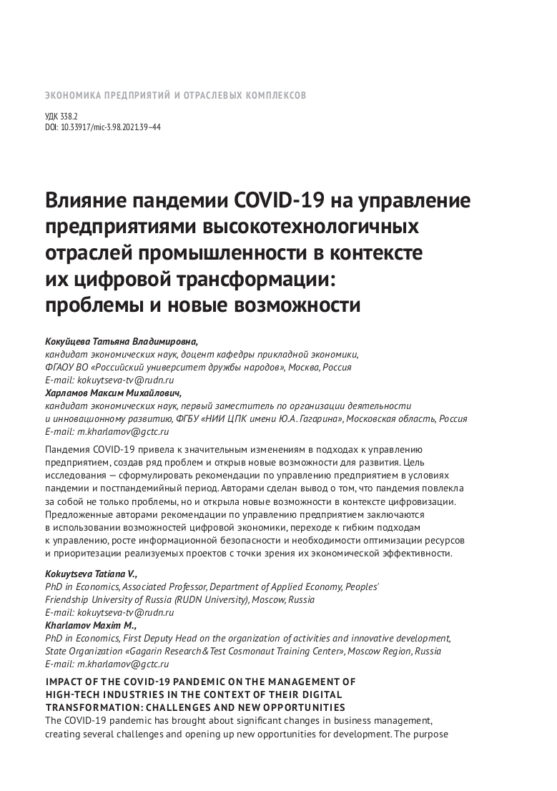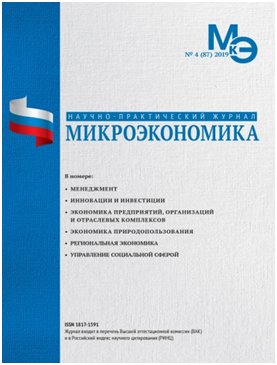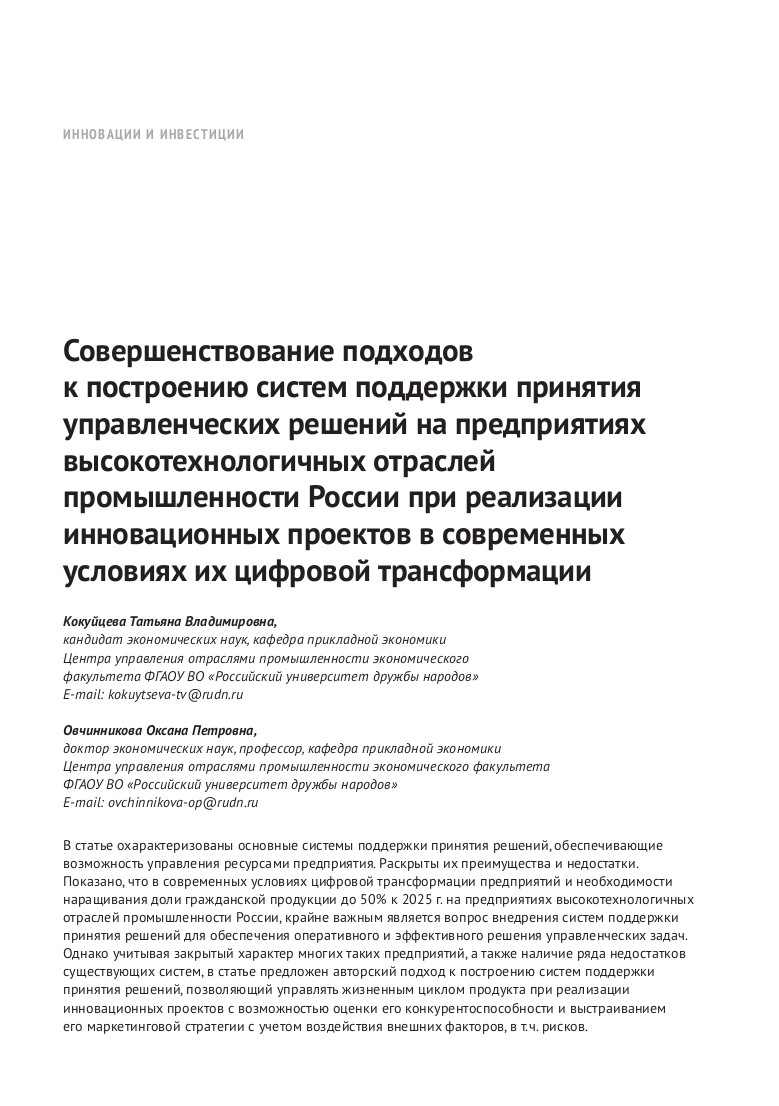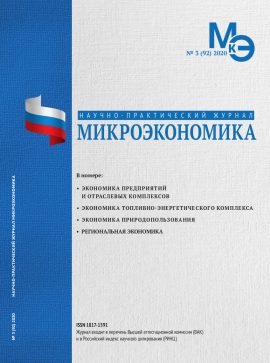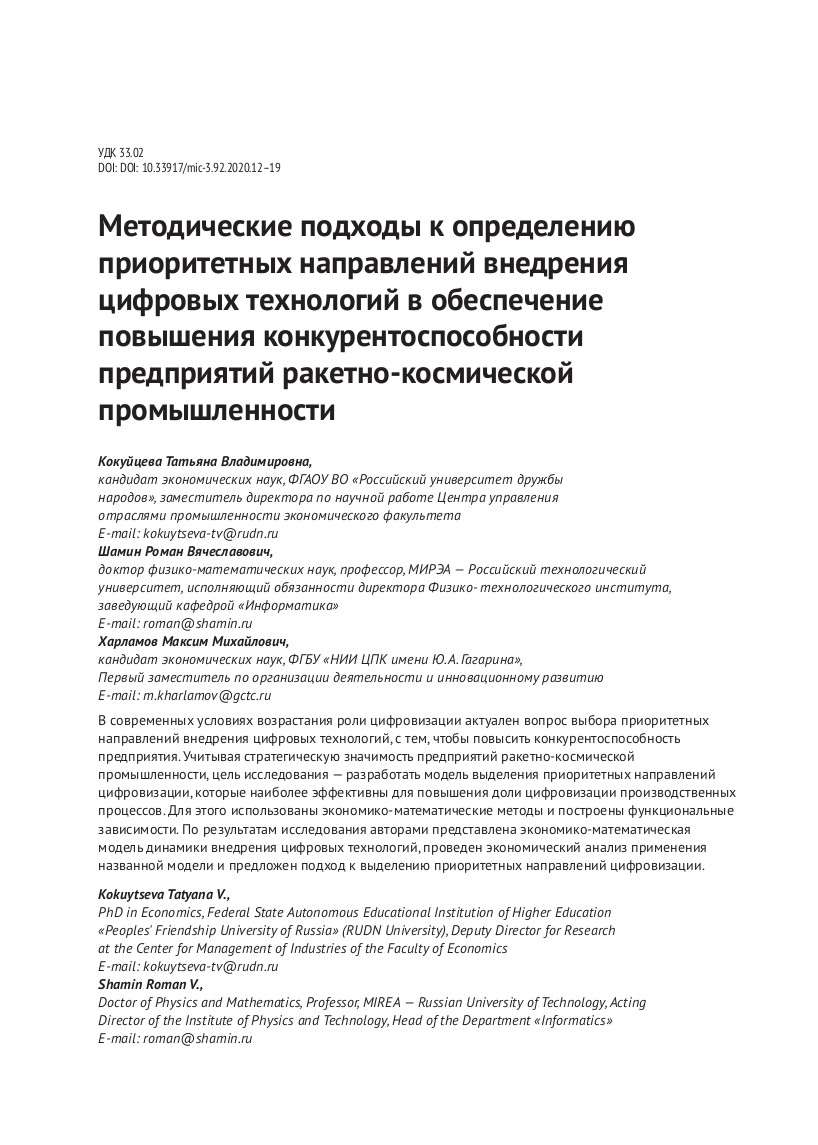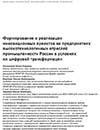Impact of the COVID-19 pandemic on the management of high-tech industries in the context of their digital transformation: challenges and new opportunities
DOI: 10.33917/mic-3.98.2021.39-44
The COVID-19 pandemic has brought about significant changes in business management, creating several challenges and opening up new opportunities for development. The purpose of the study is to formulate recommendations for business management in a pandemic and post-pandemic period. The authors concluded that the pandemic not only caused problems, but also opened up new opportunities in the context of digitalization. The recommendations for business management proposed by the authors are to use the possibilities of digital economy and flexible approaches to management, to increase information security, to optimize resources as well as to prioritize projects in terms of their economic efficiency.



